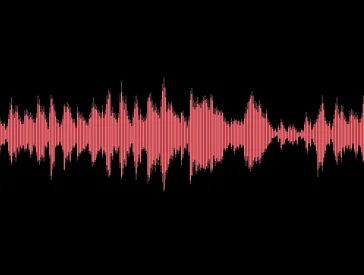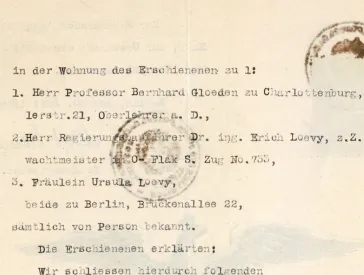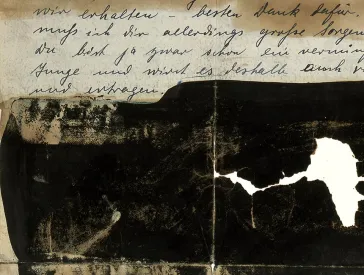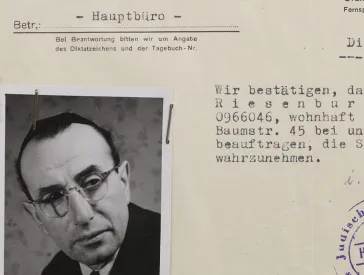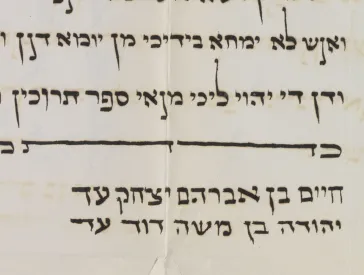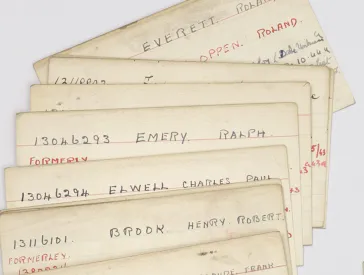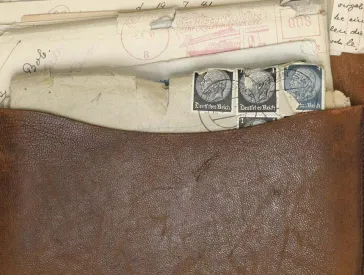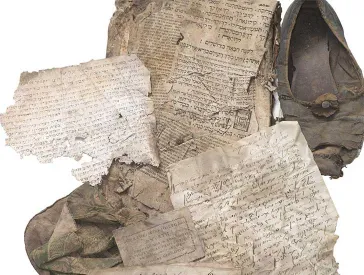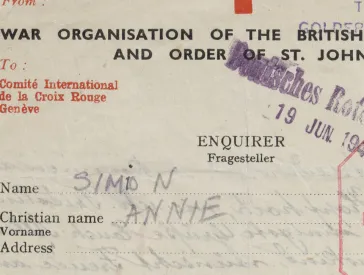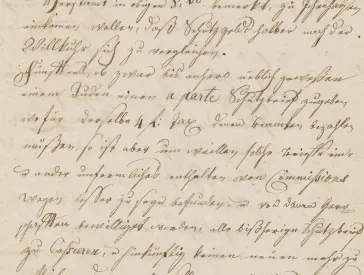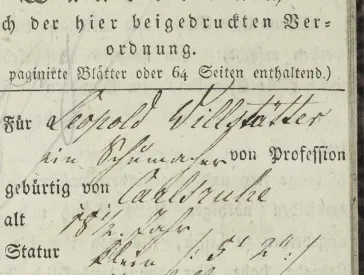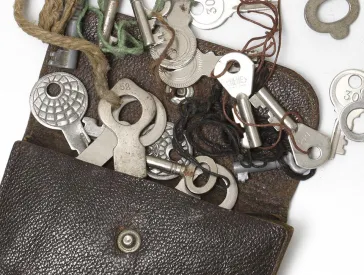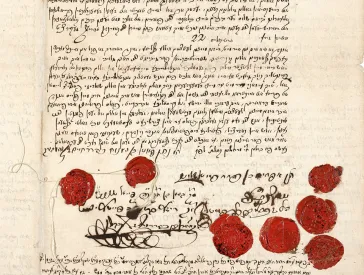Failed Emigration
Object in Showcase
Shortly before being deported on 6 July 1942, Frieda Neuber gave this leather pouch to her niece Gerda Maison. The pouch contains drafts of letters by Frieda as well as letters and telegrams sent to her over a period of nearly three years.
Leather pouch belonging to Frieda Neuber with letters from the years 1939–1942, Gift of Gerda Maison; Jewish Museum Berlin, photo: Jens Ziehe
Vain Efforts to Emigrate
Most of them consist of correspondence between herself and Bob Kunzig, a young American law student. They had met during Frieda Neuber’s three-year stay in Philadelphia. Bob tried to arrange the emigration of his Aunt Frieda to the US with money he had inherited from his grandmother. He obtained an affidavit and passage on a ship, and urged her to speak personally to the American Consulate. But Frieder Neuber was assigned such a high number on the waiting list for emigration to the US that she could not have emigrated for years. She was deported to Theresienstadt where she was killed along with her siblings Clara and Hermann.
Deported despite Baptism
Only Frieda’s brother Robert Maison, Gerda's father, survived thanks to his non-Jewish wife. It didn’t help in the least that all four siblings had been baptized at the St. Jacobi Protestant Church in Berlin on 12 October 1882. More than fifty years later, they were classified by the Nuremberg Race Laws as Volljuden (full-blood Jews). They were exposed, without recourse, to the Nazis’ persecution. In her letters, Frieda Neuber describes her arduous daily life in Berlin – in a tone shifting between hope and deep disheartenment.
Additional Dokuments from Frieda Neuber
Exceptional Documents
Gerda Maison gave the leather pouch to the Jewish Museum Berlin sixty-five years after her aunt’s deportation. Many of the family collections in our archive contain letters or messages from those who remained in Germany to their emigrated relatives. In very few cases, however, have the letters of both correspondents survived. In an interview from 30 October 2007, Gerda Maison, then 88, talked about what she lived through as a young woman. You can listen to audio clips from the interview here.
| Title | Leather pouch belonging to Frieda Neuber with letters from the years 1939–1942 |
|---|---|
| Collection | Material Culture |
| Location and year of origin | Berlin, Philadelphia, 1939–1942 |
| Medium | Leather, paper, ink, pencil |
| Acquisition | Gift of Gerda Maison |
Eyewitness Testimony of Deportation
In an interview from 30 October 2007, Gerda Maison, then 88, talked about what she lived through as a young woman. You can listen to audio clips from the interview here.

Gerda Maison talks about Frieda Neuber’s futile efforts to emigrate.

Gerda Maison describes her mother’s attempts to prevent her aunts’ and uncle’s deportations.

Gerda Maison describes the deportation of her aunt Frieda Neuber.
Selected Objects: Archive (10)
